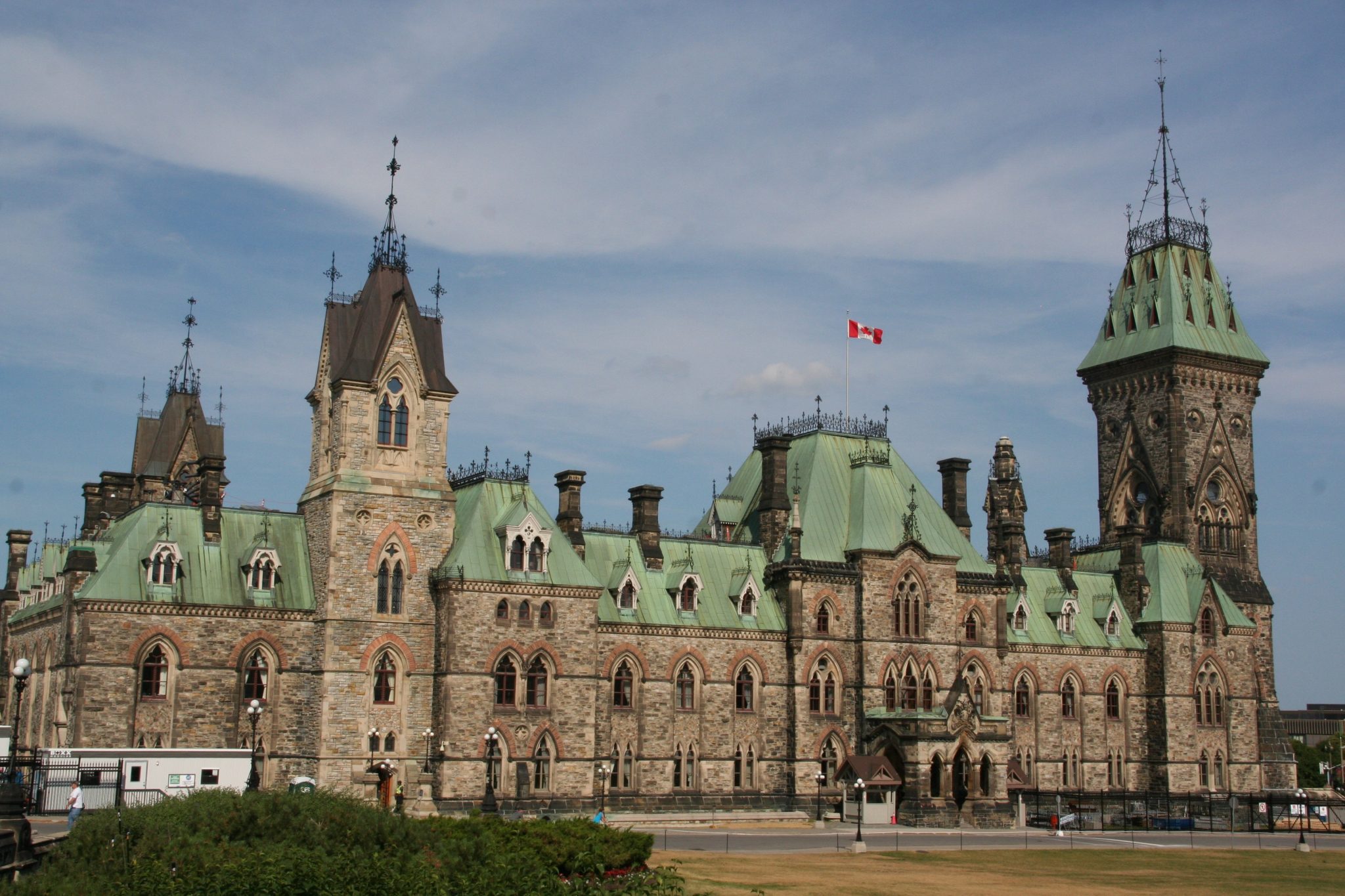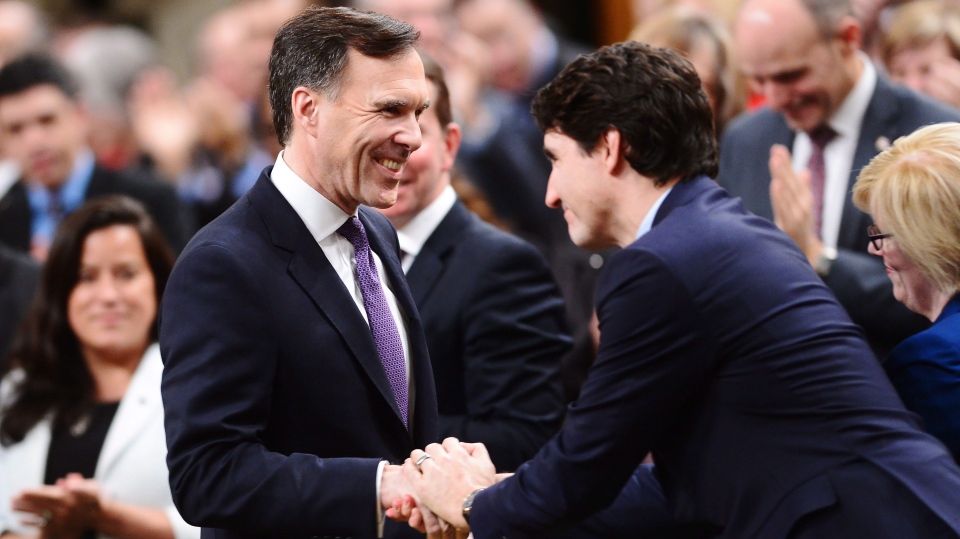Refugee Rights Under Threat By Budget 2019
New Omnibus Bill Could Prevent Refugee Claimants from Being Heard
April 4 is Refugee Rights Day in Canada. As important a day as this is, it seems to have been overlooked by the federal government, given new provisions to the Immigration and Refugee Protection Act quietly tabled as part of a 392-page omnibus budget bill on April 8.
The provision introduces a new ground of ineligibility for refugee claimants. If an asylum seeker has an open or previously opened claim for refugee protection in certain countries (such as the United States), they would not be allowed to make a claim in Canada.
Claims by people who’ve previously made unsuccessful claims, been deemed inadmissible due to a criminal record, or granted protection elsewhere would also be ineligible.
In short, many asylum seekers would be denied access to Canada without getting the chance to tell their story, let alone defend their claim.
This presents a serious moral, ethical, and legal problem for the federal government: Canada has an obligation under the Refugee Convention and Convention Against Torture to treat all refugee claimants equally and to hear them out.
In fact, Refugee Rights Day, April 4, specifically recognizes a 1985 Supreme Court of Canada decision (known as the Singh decision) that every claimant has a right to be heard in an oral hearing.
To recap: the federal government of Canada tabled a Bill that included provisions to prevent refugee claimants from making their case right after the anniversary of a landmark decision in refugee rights.
Border Security Minister Bill Blair commented that this new measure seeks to prevent “asylum-shopping” and added that this was part of the government’s ongoing efforts to “reduce the number of people who are crossing our borders irregularly.”
Given long-standing concerns over the Safe Third Country Agreement with the U.S., it’s hard not to interpret this new provision as a stop-gap measure to help stop irregular asylum claims. The Safe Third Country Agreement stipulates that refugees making claims at official border crossings from the U.S. are turned away, as the U.S. is considered a safe country.
But irregular, unofficial points of entry are exempt from this agreement—in turn, this has contributed to the image of an asylum crisis at the 49th parallel, with numerous refugees using this loophole to make a claim in Canada.
Many people have been calling for an end to the STCA, or an expansion of it, to help close these loopholes. This new provision, quietly slipped into the budget omnibus bill, could provide a means of closing those loopholes—assuming it isn’t a case for a Canadian Charter of Rights and Freedoms case with the Supreme Court.
Canada’s refugee and immigration system is one of the most bureaucratic in the world, as we’ve discussed in the past. Even with these loopholes, there is no guarantee someone will actually receive refugee protections. It’s remarkable that, instead of directly addressing problems, the federal government has seen fit to include this change to the Immigration and Refugee Protection Act as part of a larger budget Bill, and more remarkable that they didn’t consider the optics of this choice or the significance of this date.
As refugee law experts Jamie Liew and Shauna Labman wrote in a recent opinion piece for the Battleford News-Optimist, “Canada is celebrating a milestone – the 40th anniversary of Canada’s private sponsorship regime that has resettled 327,000 refugees.”
“The government says we should be comforted by the fact that claimants will have access to a Pre-Removal Risk Assessment (PRRA), which examines whether someone would be returned to a situation of torture or other risk,” write Liew and Labman.
“But this isn’t the same as a full hearing at the Immigration and Refugee Board.”
Liew and Labman also state that not everyone will get PRRA; some people only get one if they ask for it, and acceptance rates are extremely low. Only 3 per cent of PRRA application in 2018 were accepted.
No matter what the law may be, people will always come to Canada’s borders. We have established a reputation as a welcoming nation of diverse peoples, ready to lend a hand and help others through difficulties and challenges.
The federal government’s stance on immigration and refugees reached viral status in the days and months following the 2015 election. This stance has become cannon fodder for critics, but the government has stayed firm in this commitment—at least until this Bill was tabled.
Canada’s immigration and refugee system works. While there will always be more work to be done, it’s not the broken, ramshackle system critics often claim it to be. If the government is going to outwardly make a show of accepting immigrants and refugees, then it had best put its money where its mouth is and give all refugees due process.
It’s shameful that, on such a distinguished and proud anniversary, the Canadian government has quietly tabled a bill that will impact so many people simply looking for a safe haven.
Ford Pushing Anti-Immigration Sentiments—Again
A Review of Ontario’s Borderline Unconstitutional Budget Cut
Ontario recently made a whopping 30 per cent cut to legal aid in the new 2019 budget, meaning low-income refugee families that are already suffering from marginalization and a severe lack of resources will now face even more hardships.
Legal Aid Ontario has suspended all funding for refugee lawyers, and as such, they are unable to take on new refugee claimants or other matters in support of the refugees.
Without the ability to seek out legal aid, refugees are unable to support their claim and face greater risks of deportation, prosecution, or even death in some cases.
So why were these cuts implemented in the first place?
Two-Fold Debate for Slash in Budget
Two factors can explain the debate for the budget cut. First is a matter of politics.
Ford doesn’t believe that the federal government is doing enough to prevent a refugee crisis. He continually states that our borders are out of control, even claiming Trudeau’s 2017 Tweet that kicked off the #WelcomeToCanada trend on social media is responsible for the increase of refugees over the years. From his public comments and criticism, it’s clear Ford puts the blame squarely at the federal government’s—if not the prime minister’s—feet.
Through spokespeople, the Ontario provincial government has insisted that the federal government foot the bill for the cost of dealing with irregular border crossings.
But is there actually a crisis? Are our borders out of control? The numbers suggest neither are the case. Even though the number of refugee claimants to Canada has increased, the total number remains in line with historical averages. What’s more, the number of irregular border crossings has dropped to the lowest levels since June of 2017.
Despite this data, the federal government has implemented changes to border control and how it’s managed. Human rights organizations have criticized these measures as being harsh and violating the rights of refugees.
The second reason for this dramatic provincial budget cut is a result of skewed reasoning of the far-right largely based on racism and xenophobia.
When the Ontario Conservative talks about being for “the people,” Ford is only interested in representing issues on behalf of some people. This anti-immigration, xenophobic ideology is, unfortunately, a common one among far-right politicians used frequently in propagandistic attempts to push specific agendas.
Read More: Debunking the “Criminal Immigrant” Argument
A Right to Legal Aid
Canadian constitutional law states that legal aid is a right and therefore must be provided in criminal proceedings. This results in many legal aid resources going into criminal law services. These criminal services are then expensed by legal services for low-income or at-risk individuals facing legal challenges for which they are not adequately equipped to handle themselves.
In the event that a refugee claimant cannot afford counsel, however, they are still constitutionally entitled to legal aid due to the seriousness of the case. Thankfully, advocates are trying to help those in challenging situations, during a time of need and support by the Canadian government.
It’s no surprise that when these individuals have access to high-quality refugee lawyers, the chances of a positive income are greater than those without the help of legal aid. When it comes to refugee claims, stakes are high. If not properly addressed and handled with the right resources, claimants are at risk of severe hardships that will drastically change the course of their life
Canada’s Delicate Balance Between Duty and Diligence
Canadian International Obligation to Aid Asylum Seekers Still Strong Despite New Strategy
Over the years, Canada has prided itself on being a welcoming, inclusive nation that fosters community and positive attitudes towards people from all walks of life. However, the new $1.18 billion border strategy set forth by the federal government may compromise that reputation.
The new 2019 federal budget has line items to assist in strengthening the Canadian border, ensuring irregular crossings are managed respectfully and efficiently and to help expedite the influx in asylum claims. But the question still stands – is this an effective way to handle these issues and are we still standing by our fundamental, international obligation towards asylum seekers?
Canada has only recently started to face challenges with irregular migration, unlike other Western democracies who have been dealing with these issues for years. With such little experience, the federal government is “finding its footing” with regards to adequately dealing with these challenges while attempting to maintain the public’s confidence in the asylum system.
In order to ensure the fairness of the asylum system in Canada, all claimants must continue to receive an oral hearing before an independent tribunal and also be afforded the right to appeal a negative decision. In other words, efficiency should not trump procedural fairness.
In addition, all individuals who are facing persecution should continue to be afforded the right to make a refugee claim in Canada, irrespective of whether they have previously filed a refugee claim (which has not been decided) in another country. So long as a person has not been granted refugee status, he/she should be able to seek protection in Canada. This is critical in ensuring Canada fulfills its role in the international asylum issue.
This is the delicate balance the Canadian government faces – honouring our international obligations while effectively managing the asylum system and remaining mindful that public opinion is impressionable, is easily swayed, and can have a negative impact on these current issues. However, the government ultimately cannot base important policy and legislative decisions on public opinion. The principles and justifications underlying a given policy must not be compromised for political reasons.
Canada Cracks Down on Irregular Border Crossings with New $1B Strategy
What Does Morneau's Proposed Budget Mean for Asylum Seekers?
Last month, Canada’s Minister of Finance Bill Morneau proposed a new financial strategy to support Canada’s asylum and refugee system, alongside a stricter policy on irregular asylum seekers. This strategy, incorporating spending of $1.18 billion over the next five years, is an effort to expedite the processing of the influx in asylum claims and drastically improve border security.
Minister Morneau stated that the government is ensuring Canada’s asylum system is governed by the rule of law in a fair and effective manner, as it should be.
Every year, Canada processes approximately 50,000 asylum claims. Critics have said that the government is not sufficiently equipped to handle this many applications, and that the system lacks fundamental resources.
This, coupled with xenophobic rhetoric and propaganda painting a picture of foreigners flooding the borders and occupying resources, has raised concerns that the federal government is now attempting to address.
The $1.18 billion in federal budget spending is divided into several funnels: $452 million for Immigration, Refugees and Citizenship Canada; $382 million for the Canada Border Services Agency; and $208 million for the Immigration and Refugee Board.
"That money was put there in order to ensure we have appropriate border security approaches but also improve the processing speed for immigration Canada," Morneau said.
"So if someone comes across the border [and] claims asylum, we want to make sure we process that quickly so they either are moved back to where they came from, if it's inappropriate, or in the case where they are legitimately seeking asylum, we deal with them in a compassionate and rapid way."
Furthermore, due to complaints about border agents and cases of alleged behaviour, attitude, and abuse of power towards asylum seekers, the government will spend $24.4 million over five years to expand the Civilian Review and Complaints Commission, a new division of the Canada Border Services Agency. This will act as an independent review body for the Royal Canadian Mounted Police as well as the Canada Border Services Agency.
To help relieve pressure and to prevent these issues from arising in the future, the government plans to hire three more Federal Court judges to bring the total to 39. It will also use the funds to expand a pilot project created to facilitate the pre-hearing process for refugee protections claims.
While the mandate of the 2019 budget strategy is aimed at positively impacting Canadian borders and asylum claimants, it remains to be seen whether the intended objectives will be achieved and the asylum claims will be processed in an efficient, fair and timely manner.
Immigration Consultancy Requires Greater Regulation
Regulatory Bodies Still Plagued by Cases of Fraud, Scams Affecting Would-Be Immigrants
Scams and immigration fraud continue to plague Canada’s immigration system, despite the best efforts of lawyers, consultants, and immigration staff. As a result, experts and advocates are speaking up to raise awareness, and to get federal and provincial governments to take a harder stance against these issues.
Would-be immigrants to Canada are often targeted by people looking to make a quick buck. Due to a lack of understanding of Canada’s immigration and refugee systems (which can be remarkably strict and bureaucratic), many immigrants turn to agents, consultants, and lawyers to help them navigate the process.
Sadly, regulatory bodies meant to protect these vulnerable people by intervening in unethical behaviour often lack teeth and resources. In some cases, they simply lack the authority necessary to investigate and prosecute these cases.
Fraudulent Immigration Agents
A recent case in Winnipeg saw an immigration agent skip town after collecting thousands of dollars from a group of Chinese immigrants, who now have no real recourse.
Jiatoo Immigration Consulting Inc., run by Zhihao Jia, shut down its offices, apparently overnight, providing no notice to landlords or clients. According to licensed immigration consultant Yu Xiang, currently assisting some of Jia’s victims, some of the cases Jia was working on may not be legitimate, as Jia was not licensed to provide immigration advice or services.
In short, not only did this immigration agent abscond with client money, he was not able to actually help these clients in the first place.
Now under investigation by the Winnipeg police, Jia acted as an immigration agent for Canada Border Services Agency (CBSA) immigration consultant Yu Wang.
Jia’s role was to find potential clients for Wang—standard practice for a registered immigration agent. However, the ICCRC forbids registered agents from providing any advice for immigration, and by accepting money from or preparing applications on behalf of these clients, Jia skirted these rules.
Wang, meanwhile, hasn’t seen a dime of the money taken by Jia, nor was he aware of a client list.
Unfortunately, cases like this occur with frustrating regularity.
The ICCRC’s Hands are Tied
According to the CBSA, nearly 200 cases of suspected immigration-consultant offences come to their attention each year. Cases similar to the one in Winnipeg are unfortunately common, according to Xiang.
Sadly, the ICCRC cannot legally prosecute or investigate allegations of fraud.
They’re limited to disciplining a consultant if an agent of theirs acts unethically; on the first offence, the council member receives a written warning. The second offence results in a $100 fine.
There simply isn’t much the Council can do to stop these cases from occurring, and that’s a problem.
Scams and Fraud at Home and Abroad
In a recent piece by the Vancouver Sun, immigration consultant Laleh Sahba recounted coming across “migration agents” in Ankara, Turkey, offering her access to an immigration professional who could get her a visitor or student visa for $25,000 or more.
These "agents" approached Sahba close to the Canadian embassy in Ankara. For her, it was a reminder of how easy it is for people to target vulnerable migrants.
“This is a huge business. And what disturbs me is that many are in it for the money in Canada. They’re playing with people’s lives,” said Sahba, who feels that more can be done to clean up and regulate the growing industry of immigration consultancy in Canada.
Speaking to the Vancouver Sun, Marina Sedai, chair of the Canadian Bar Association’s immigration section, highlighted how the Association had told Immigration Minister Ahmed Hussein that regulation systems for immigration consultants are not working.
According to the Canadian Bar Association, regulated ICCRC members have received 1,470 complaints since 2011.
While Sahba believes most regulated consultants do excellent work and that the ICCRC is doing a good job in monitoring this work, she still feels that there’s an awful lot of misrepresentation about the apparent simplicity of immigrating to Canada.
In some cases, would-be immigrants are told by unscrupulous consultants to apply for a study visa. This would then let spouses come to the country on a spousal work visa. Problems arise when these people—who don’t actually want to be students—fail language exams and can’t get into post-graduate school.
According to Sabha, these people—who get deported or return home—have “wasted their time and huge amounts of money. And their kids have in the meantime become used to Canadian society. This is where my heart bleeds.”
Loss of Trust in Canadian Immigration
Beyond the loss of money, there’s also a significant loss of trust in Canada’s immigration systems. When these cases occur, would-be immigrants frequently must start their application process all over again.
In worst-case scenarios, though, scams and fraudulent activities result in missed deadlines—which can mean deportation.
There is clearly significant room for improvement in regulating these consultants. At the same time, though, unethical consultants still appear to be a minority.
But for something as important and life-affecting as immigration, one scam is one too many.
Immigration is a significant driver of Canadian society. Protecting immigrants during a very vulnerable point in their lives should be of the utmost importance.





